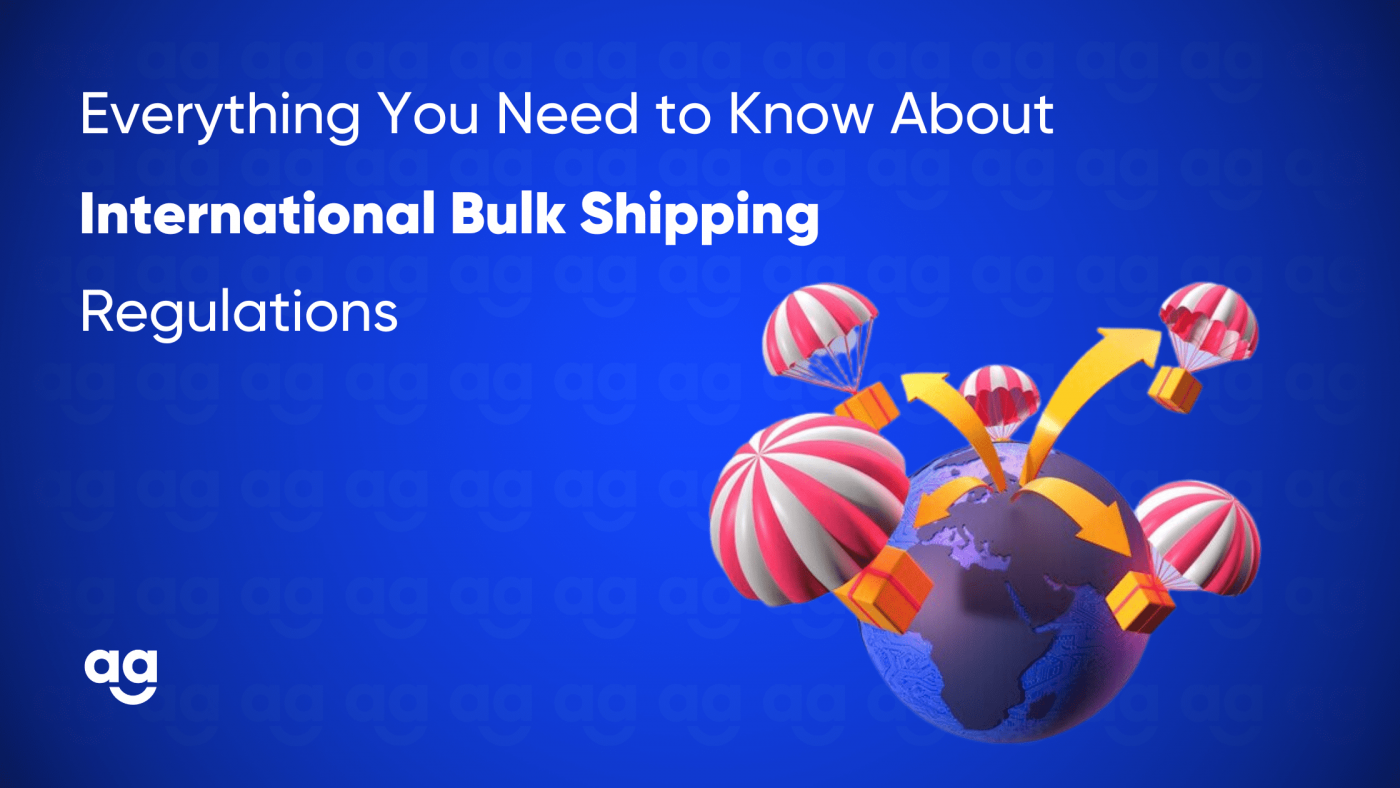Introduction
Did you know that more than 5,000 bulk carriers operate across the globe, as reported by the International Maritime Organization (IMO)?
Meanwhile, India’s eCommerce market is expected to reach $120 billion by 2026, reporting a steep rise from $38 billion in 2021. Home delivery and easy access to the internet have made international bulk order shipments a vital component of trade among industries.
Certain international shipping rules, compliance measures, and regulations have been introduced to ensure the safe operation of bulk carriers. Shipping by air is the primary transport mode for global trade, with an expected revenue of $149.4 billion in 2023, according to the International Air Transport Association (IATA). Hence, it is imperative to comply with shipping regulations.
These rules address key safety concerns such as sustainability, pollution prevention, and cargo shift during transportation that can potentially harm the environment.
Here, we will look into important international bulk shipping regulations!
What Are Restricted Goods?
When it comes to international bulk shipping regulations, certain products have restrictions on export to some countries. On the other hand, export sales to certain purchasers can also restricted.
Transactions involving products with regulatory or safety considerations are also restricted, regardless of origin or destination. Examples include:
- Alcoholic Beverages
- Medicinal Goods
- Food Items
Shipping Regulations in a Few Countries
- Russia is strict about exports of electronic items, which require rigorous inspection and can take several days.
- Canada has banned the import of Baby Walkers.
- Australia lays down strict measures and rules for the shipments of supplements, vitamins, and any food-related products and can ask sellers to display ingredient lists and nutritional labels.
- Spain recommends a stringent customs procedure for dietary supplements and cosmetics.
- Zimbabwe is strict about the shipment of several product categories, including textiles, appliances, and automobile parts.
Key International Bulk Shipping Regulations
IATA manuals are updated every year to regulate bulk cargo operations and establish rules to be followed by shippers, airports, airlines, freight forwarders, and ground service providers, amongst others. The bulk shipping industry is experiencing rampant growth, and the data proves it:
- Bulk shipping in intraregional routes was a 27.6% share of global trade in 2022.
- Intra-Asia routes recorded the highest growth rates from 2021 to 2022.
- Global growth projections in bulk shipping are at 3.2% for 2023 and 2.9% for 2024, with South Asia, particularly India and Central Asia, estimated to record the highest growth.
With this development in bulk shipping, staying aware of regulations is imperative:
Dangerous Goods Regulations (DGR)
Dangerous Goods are categorized as products that can potentially cause harm to the people on board or the aircraft. The dangerous cargo or hazardous materials are duly governed by the International Civil Aviation Organization (ICAO) or the local Civil Aviation Authority Regulations. This list of such goods is revised annually and published by IATA. Some examples of dangerous goods are lithium batteries and/or pyrotechnic materials,
IATA Live Animals Regulations
This regulation ensures that live animals are transported from one region to another safely by commercial airlines. The primary objective of LAR is to ensure that animals can be moved from one corner of the world to another using safety and humane protocols.
Digital Integration in Air Cargo
IATA has encouraged innovative technologies, streamlined processes, and global standards along with end-to-end supply chain collaboration to address certain challenges that existed because of traditional means. This protocol includes data availability, end-to-end visibility on shipments, data-sharing, smart automation, user-centric services, and high-added value services with a unique value proposition.
Cargo Border Management
The aviation industry has made its mark in transporting bulk cargo over long distances in the least amount of time compared to other modes. This has been made possible because of the integrated border procedures and automation of risk management principles introduced by national regulators or international organizations like WTO, WCO, ICAO, and UN.
The air cargo industry follows a simplified and compliant procedure through customers, security, capacity building, and trade facilitation. Such procedures ensure the safe handling, loading, and unloading of bulk air cargo.
Cargo Operations
Master Operating Plan (MOP) is a vital aspect of Cargo Operations that is significant for seamless operation and handling. It includes regulations and safety measures related to efficiency in warehouse processes, guidance for acceptance and handling, transparency of capabilities, and ensuring safe handling of ULDs.
Cargo Sustainability
This regulation aims to positively impact the planet and its inhabitants while leading to global peace, sustainability, and prosperity through industry partnership. The Sustainable Development Goals (SDGs) are the guiding principles, and several actions are recommended under this protocol.
It includes developing a diverse workforce for air cargo, its 3-pillar strategy – the Future Air Cargo Executives (FACE), a global initiative to transform the gender balance and develop professionals for tomorrow’s air cargo. Other elements include reduction of fuel and energy consumption, automation of procedures, elimination of packaging waste, and investment of lightweight materials.
Perishable Cargo Regulations (PCR)
The Perishable Cargo Regulations deals with the packaging and handling of temperature-sensitive products, especially in response to the pharmaceutical industry’s need. This has further led to the standalone specialized publication Temperature Control Regulations (TCR), which addresses temperature management issues identified by the industry.
The Bottom Line
Businesses must adhere to global regulations and laws regarding bulk shipping. You don’t need to surf through compliance programs or invest time and money in research on domestic or international regulations. Instead, you can depend on an all-in-one platform.
Shipyaari offers key insights, transparency, and compliance in developing solutions for bulk shipping procedures that correspond to the integrity and integration of global trade.
For significant insights on how to sell your products internationally, visit our website.







 Shipping
Shipping







